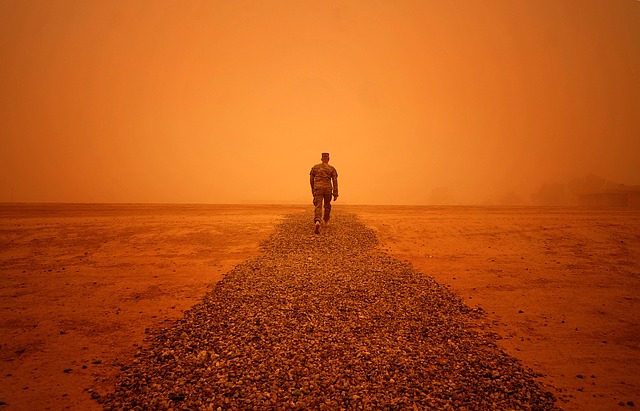
Two speakers discussed their experiences of when they traveled through the destruction zone of the Islamic State as part of a panel on genocide prevention Wednesday night.
The United States Holocaust Memorial Museum (USHMM) held the panel titled “Exposing the Darkness” at the University of Miami’s Braman Miller Center for Jewish Student Life. Naomi Kikoler, deputy director of the Simon-Skjodt Center for the Prevention of Genocide at USHMM, and Mackenzie Knowles-Coursin, a photographer, recounted their trip to Northern Iraq in 2015, where they found the Islamic State to have committed crimes against religious and ethnic minority groups. The speakers discussed untold stories about the community that suffered directly from these attacks in detail and with photographs.
One of those untold stories was about a man named Khalif who was searching for his mother, sister, wife and son after they were taken from their town of Kocho by the Islamic State, Kikoler said. Kikoler described how they later learned that the men and older women were shot by the terror group while younger women and children were taken as slaves.
Stories like these are why Kikoler said it is important to bring this presentation to cities across the United States.
“Genocide is happening today,” said Kikoler. “We want people to reflect on what never again should be.”
This particular event, held at Hillel’s recently renovated center, is one of the many ways Hillel is committed to providing partnerships with “organizations that raise awareness,” according Executive Director for UM’s Hillel Igor Khokhlov.
“It’s important for students to care about problems not only in the Middle East but the world,” said Khokhlov. “We have to be proactive. We cannot just stand by because if we do, others will do the same.”
The event also attracted recognizable faces like President Julio Frenk, Director of the Miami Institute for the Americas Felicia Knaul, former Miami Heat basketball player Ray Allen and his wife Shannon.
Allen was there to support the museum’s efforts while Knaul spoke about her personal experience as the child of a Holocaust survivor. Knaul narrated her father’s experience from being branded at Birkenau, saying goodbye to his parents at Auschwitz, losing the majority of his family during the war and spending five years moving through different concentration camps “until his escape two days before the liberation of the camp that he was in.”
She also discussed how his experience influenced her profession, remembering that her father said he found it “very inconsequential if there were six million and a bit or a few less than six million.” What mattered was that it was a genocide against many people.
A member of the school’s Armenian Student Association, sophomore Michael Bezjian said he came out because the topic was relevant to him as Armenia went through its own genocide.
“Allowing a conflict to go on for too long could turn into an atrocity,” said Bezjian. “It’s important to act as quickly as possible.”
Feature image courtesy Pixabay user tpsdave.






